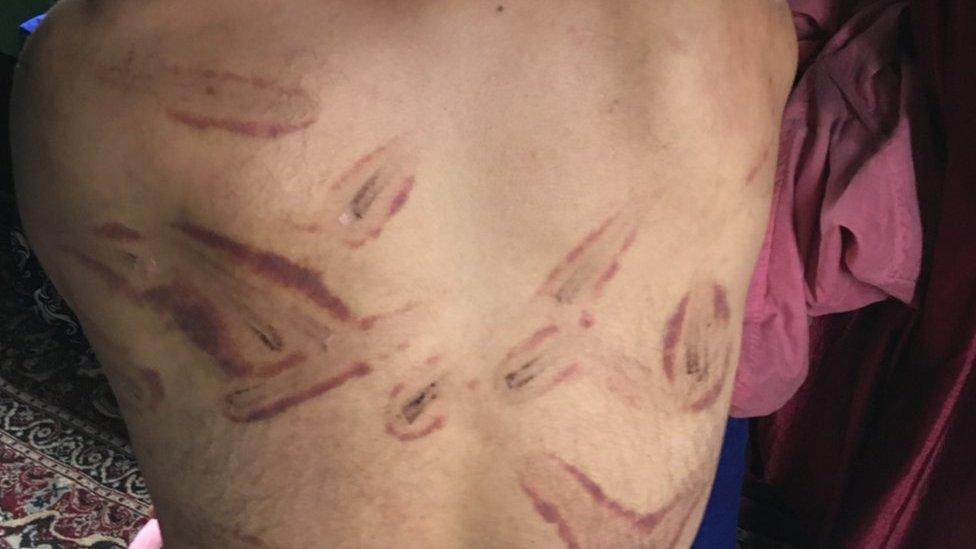Kashmir conflict: Are local elections amid lockdown a 'sham'?
- Published
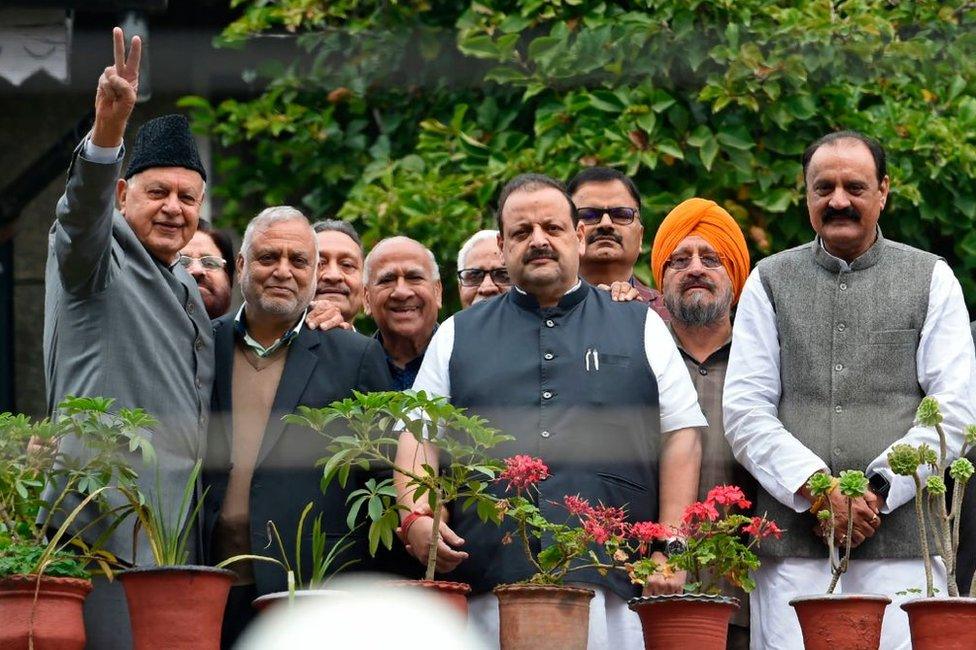
Former chief minister Farooq Abdullah (left) is one of the political leaders under house arrest
Indian-administered Kashmir is gearing up for local elections amid a lockdown and with a large number of politicians under detention. BBC Hindi's Vineet Khare reports.
The local polls are the first in the region since the Narendra Modi-led Bharatiya Janata Party (BJP) government stripped the region of its special status on 5 August.
Polling will be held on 24 October in 310 blocks, which comprise a cluster of villages, and are part of the local village council system. Votes will be counted on the same day.
But with most of the state's political leaders in detention, and a crippling communications blockade that is now in its second month, opposition leaders are calling the elections a "sham" and a "joke on democracy". They warn of a "political vacuum" that will further undermine trust in the Indian state.
Governor Satyapal Malik's adviser, Farooq Khan, has been quoted as saying that Kashmiri leaders will be released from detention "one by one after analysis of every individual." But it's not clear when this will happen or how long it will take.
'All our leaders are under house arrest'
Political leaders in detention include former chief ministers Omar Abdullah, Farooq Abdullah and Mehbooba Mufti (the first woman chief minister of the region); as well as Sajjad Lone, Shah Faisal and several former lawmakers.
The administration recently ended the detention of political leaders based in the Jammu region, which has largely welcomed the controversial decision to revoke special status. But the Muslim-majority Kashmir region - where there has been a decades-old insurgency against Indian rule - remains tense and has witnessed protests.
The region is also under a communications lockdown, with internet and mobile phone connections suspended since August.
Political parties say they are struggling to even contact their party workers and probable candidates. Many party workers have fled their homes and most local party offices are shuttered.
"How do we select candidates when we cannot contact them? All our important leaders in the valley are under house arrest," said Ravinder Sharma of Congress party, which has decided to boycott the elections. Mr Sharma says he has even been prevented from addressing a press conference.
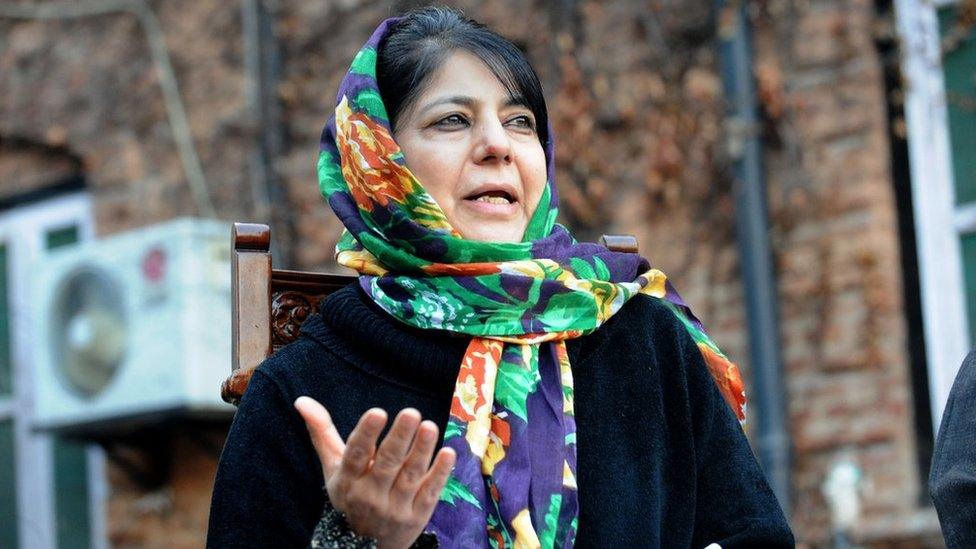
Mehbooba Mufti has been a dominant force in Kashmir politics
Harsh Dev Singh of Jammu and Kashmir National Panthers Party, who was recently set free after 58 days in detention, says political parties and leaders "should get equal opportunity and [a] level-playing field" for the elections to be credible.
"These elections seem like a formality. This is to just to show that elections are being held in the valley."
Devender Rana of National Conference - one of the main regional parties - says it's "inappropriate to talk about politics when everything is under a lockdown".
"How can political activity happen in this situation? Unless political workers meet people, understand their aspirations and inform leaders, only then a system can work."
A political vacuum
Shehla Rashid, an activist-turned-politician, who joined the newly formed Jammu and Kashmir People's Movement, says she is quitting politics.
"What is underway is not democracy, but the murder of democracy. It is a plan to install puppet leaders," she tweeted.
The BJP, however, is upbeat about its prospects - it says it will field its own candidates and also support independents.
"There is no political vacuum in Kashmir," says BJP's Ravinder Raina.
BJP leaders say the elections will infuse fresh blood in the valley's restive politics, which have long been dominated by the People's Democratic Party (PDP) and the National Conference.
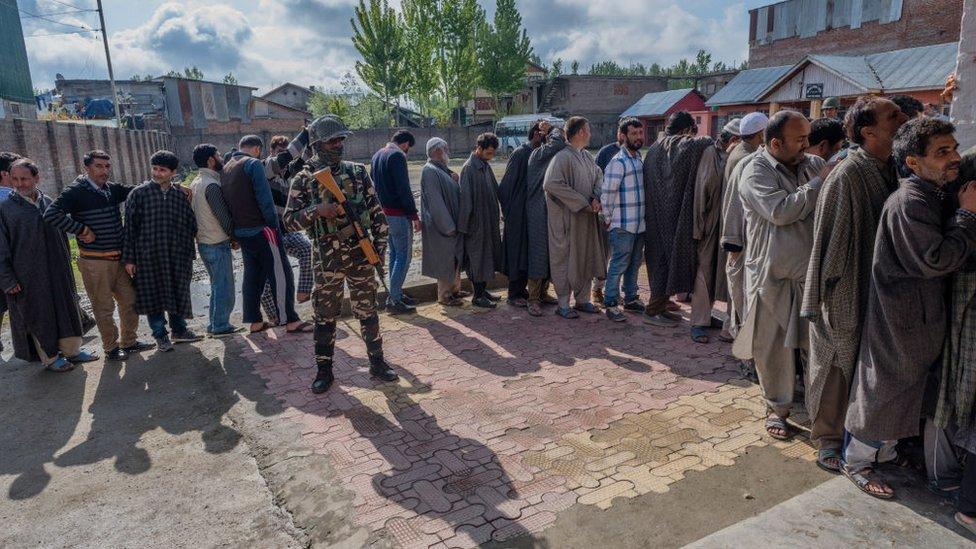
Kashmiris participated in the parliamentary elections earlier this year
The house arrest of a veteran Kashmiri leader Farooq Abdullah under a controversial law has generated heated debate in India. Mr Abdullah is being detained under the Public Safety Act (PSA), which among other things, allows detention without formal charge for two years.
Many Kashmiris say they are shocked at the treatment meted out to Mr Abdullah.
A delegation of workers from the National Conference party recently met Mr Abdullah, and his son, Omar, who is also in detention.
"They are sad about the situation. They are worried about the people," said Devender Rana, who met both leaders.
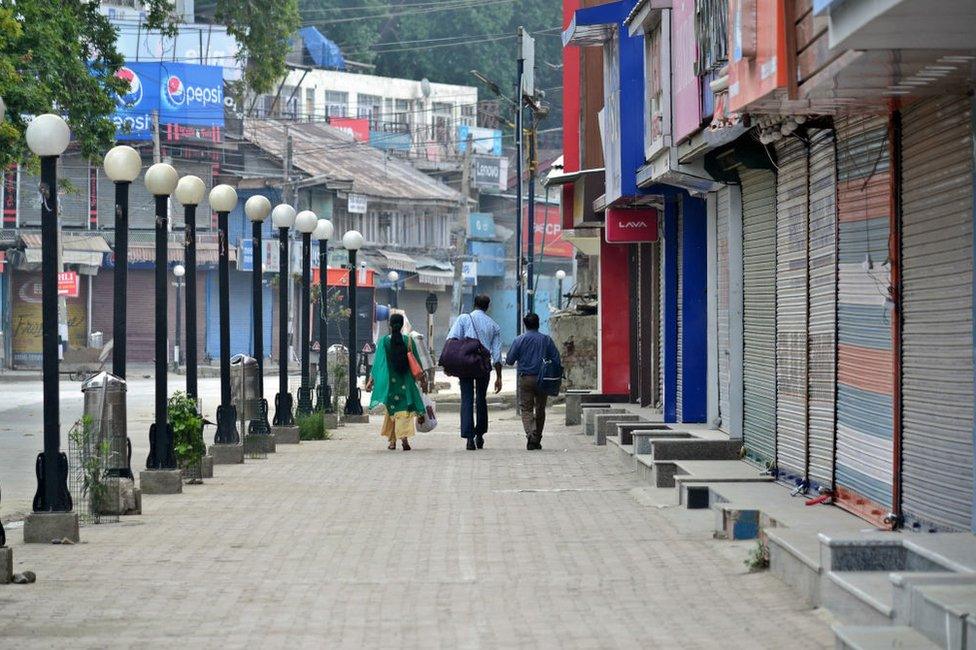
Streets are mostly deserted since the lockdown came into effect on 5 August
The BJP disagrees that the detention of leaders has impacted the political process.
"No cases have been registered against political leaders, barring Farooq Abdullah," said Mr Raina.
He attributed the detentions to "apprehensions that they [the leaders] could poison minds, which can deteriorate the situation and can lead to the deaths of innocent people. That is why they are in preventive custody".
Political scientist Noor Ahmad Baba warns that the elections could end up "creating anarchy in Kashmir".
"This would be a repressive, imposed process. It would cause revulsion and revolt, anger and mistrust," he said.

Read more about Kashmir

- Published10 August 2019
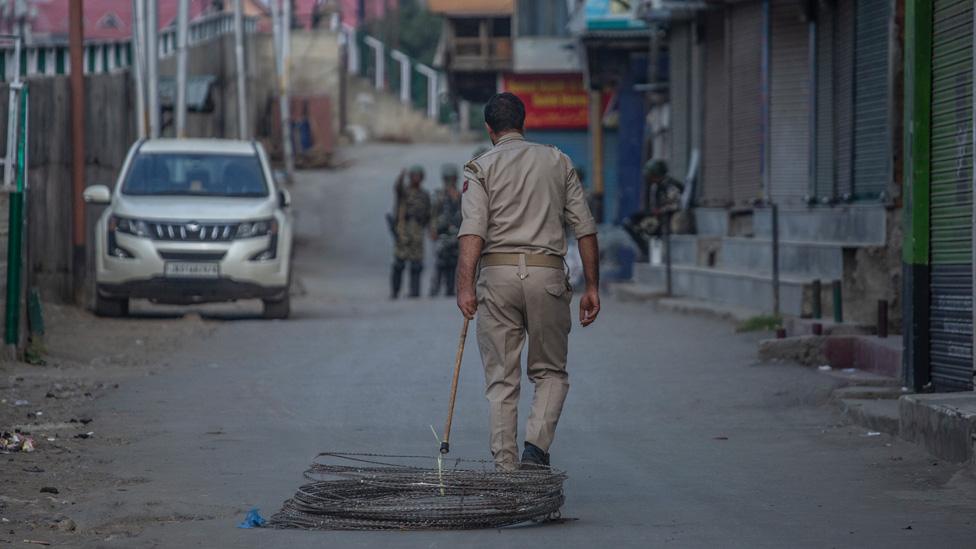
- Published3 October 2019
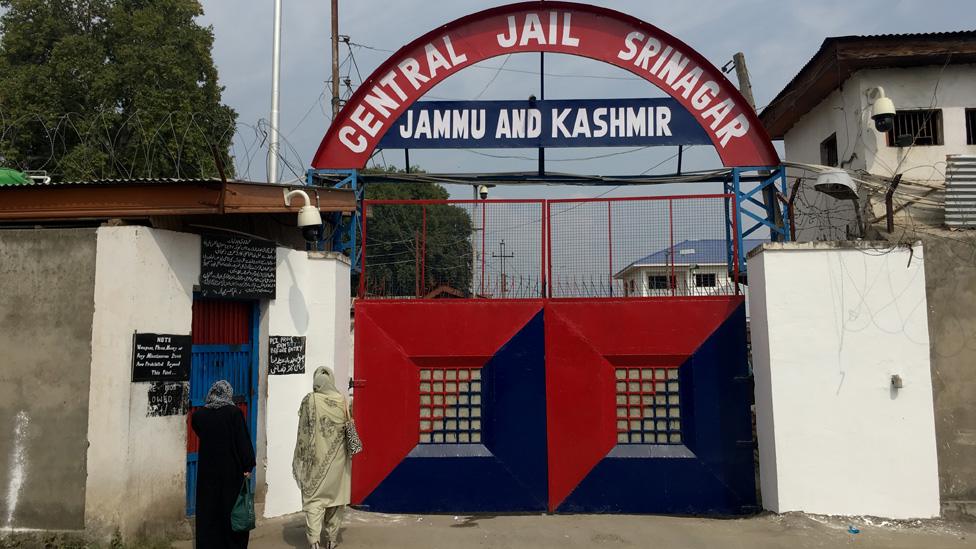
- Published18 September 2019
- Published29 August 2019
